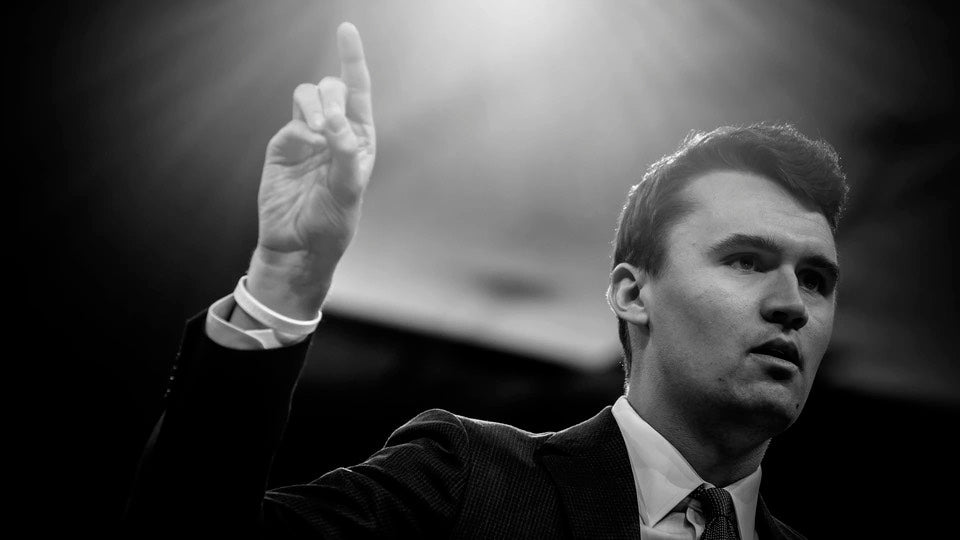
Faith in the Public Square: Charlie Kirk’s Christian Convictions and His Commitment to Open Debate
Share
Faith in the Public Square: Charlie Kirk’s Christian Convictions and His Commitment to Open Debate
Charlie Kirk has long presented his work in the public square as an extension of his Christian convictions. For him, faith isn’t a private ornament; it’s the compass that orients how he treats people he disagrees with, the kinds of questions he asks, and the way he shows up for hard conversations. This post explores two threads that often run together in his appearances and media work: a lived Christian faith, and a robust belief that ideas should be tested in open debate.
A faith that travels, not just a faith at home
Kirk speaks about Christianity as something that should “travel well”—beyond Sunday services and into lecture halls, radio studios, and everyday life. That perspective shows up in how he frames discussions about purpose, moral responsibility, and human dignity. Rather than treating faith as a topic for insiders only, he treats it as a lens for engaging with the world: what builds people up, what tells the truth plainly, and what offers hope when the news cycle is loud and cynical.
He often emphasizes disciplines that many Christians will recognize: prayer, Scripture, community, service. But he brings those practices into public life by asking what they mean for courage, honesty, humility, and perseverance when a microphone is on or a crowd is hostile. The message is simple: believe deeply, live consistently, and don’t compartmentalize.
Speaking truth with grace (even when it’s tense)
Anyone who has watched Kirk in a live setting knows the temperature can rise quickly. The audience is mixed. The questions can be pointed. The stakes, at least for the people in the room, feel high. In those moments, he argues that how you speak matters as much as what you say. The Christian call, in his view, is to speak truth in a way that refuses to dehumanize the other person.
That posture doesn’t mean soft-pedaling convictions. It means separating people from ideas long enough to critique arguments without attacking identity. It means resisting the cheap win—sarcasm, dunking, humiliating an opponent—for the more difficult win: clarifying an issue so that everyone in the room understands what’s really at stake.
Why open debate matters
Kirk’s events frequently feature extended Q&A and unscripted exchanges. The format signals confidence in the process of debate itself: if ideas are strong, they can withstand scrutiny; if they are weak, the pressure of honest questions will show the cracks. He champions the very old belief that free speech and a marketplace of ideas are not luxuries; they are how communities sort truth from error and make peace with disagreement.
That’s especially relevant on campuses and in digital spaces where algorithms reward outrage and conversation can feel impossible. By leaning into public debate—live, recorded, and widely shared—he models a counter-strategy: bring arguments into the light, define terms, ask real questions, and let the audience see the clash of ideas up close.
A ministry of presence
Another consistent theme is simply showing up. It’s easy to post a statement from a distance; it’s harder to stand on a stage and take questions for an hour. The ministry of presence—being physically and mentally present with people who dissent—is one of the most tangible ways he connects faith with civic life. In practice, it looks like:
-
Hearing tough questions in good faith. Assume the questioner is sincere, even if the framing is sharp.
-
Answering with reasons, not just conclusions. Lay out premises, not just punchlines.
-
Inviting pushback. Real dialogue includes the possibility of being challenged and the humility to clarify or correct.
Courage and civility aren’t opposites
A common misconception is that boldness and civility can’t coexist. Kirk’s approach tries to hold them together: be clear enough to be understood, kind enough to be heard, and sturdy enough to remain calm under pressure. For Christians, he argues, courage without love becomes noise; love without courage becomes silence. Public debate requires both.
Formation over performance
In an age of performance—soundbites, clips, and viral moments—Kirk often pushes toward formation: helping listeners learn how to reason through claims, identify assumptions, and engage respectfully with neighbors who disagree. It’s slower and less glamorous than chasing the algorithm, but it produces something more durable: citizens who can think, not just consume; who can argue, not just react.
What this means for the rest of us
You don’t need a stage to practice the same commitments:
-
Carry your convictions consistently. Let your deepest beliefs inform your tone, not just your take.
-
Seek out real conversation. Invite questions. Listen long enough to repeat the other person’s view fairly.
-
Aim for light, not heat. Clarify terms, isolate disagreements, and look for shared ground without papering over real differences.
-
Be present. Show up to difficult conversations with patience and good humor. Presence changes the temperature.
Closing thought
Charlie Kirk’s public life weaves together two ancient ideas: that truth exists, and that people deserve respect as we pursue it together. His Christian faith supplies the motive—love of God and neighbor—and his dedication to open debate supplies the method—free, vigorous, good-faith exchange. In a culture tempted by cynicism and caricature, that combination stands out: conviction with compassion, clarity with courtesy, and the courage to make the case in public.